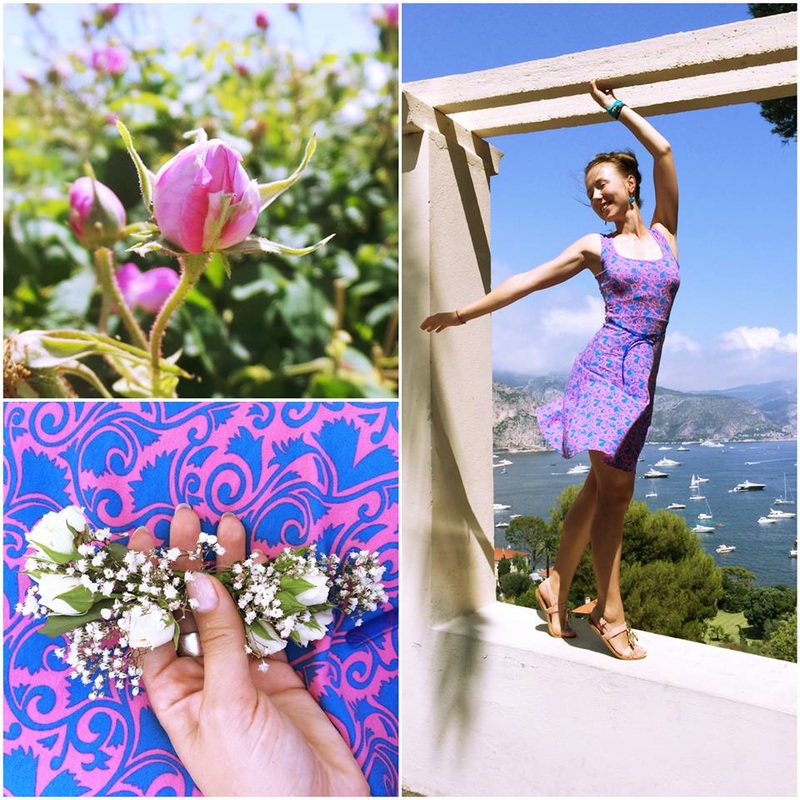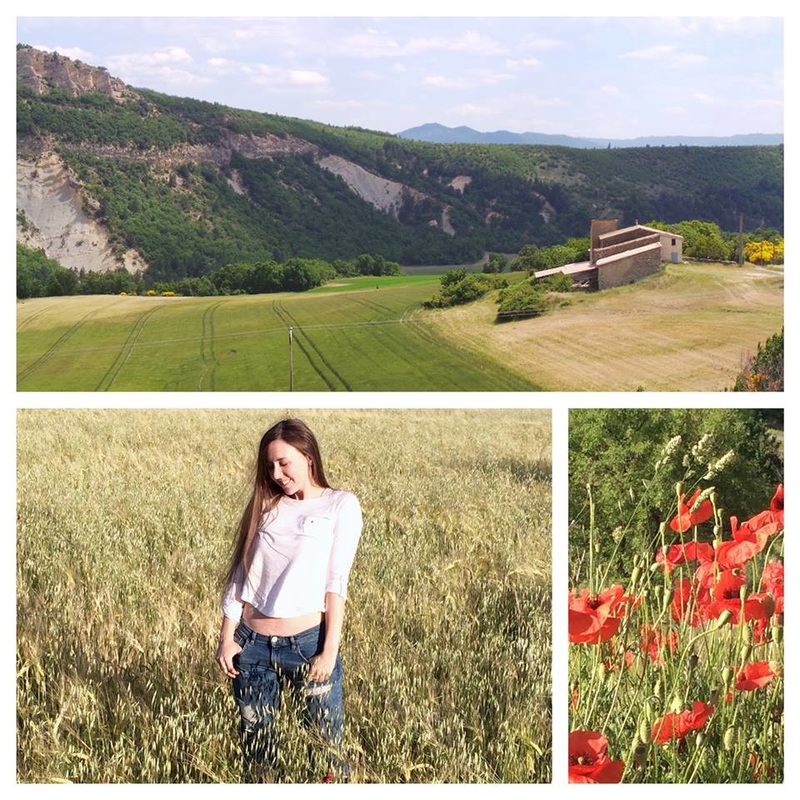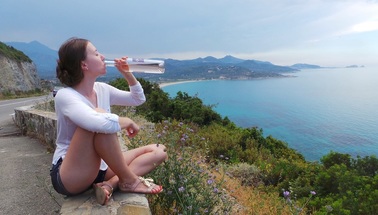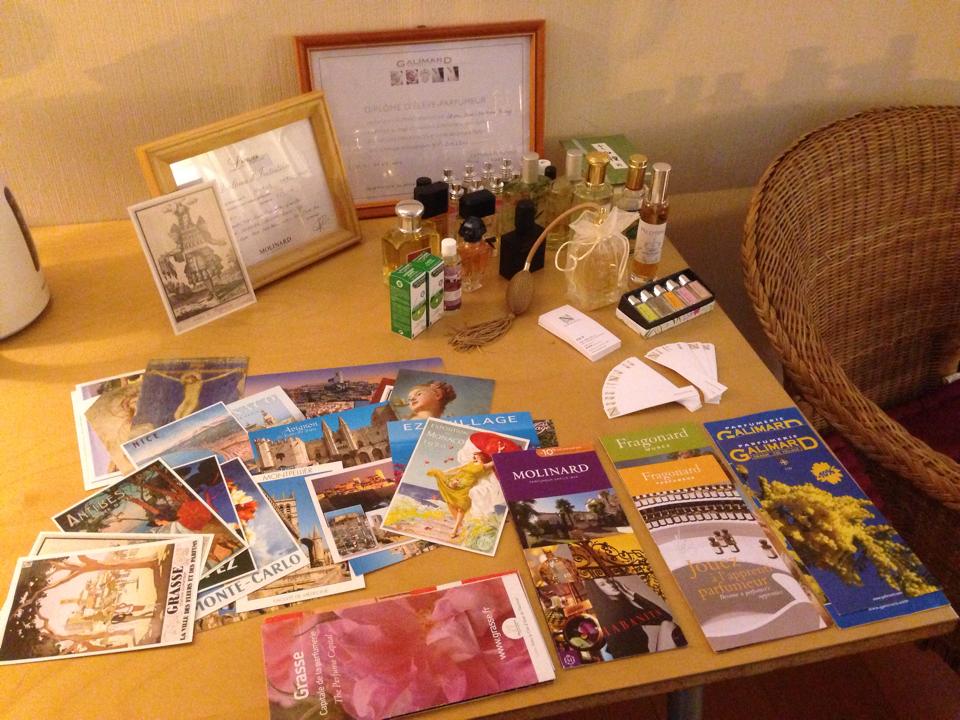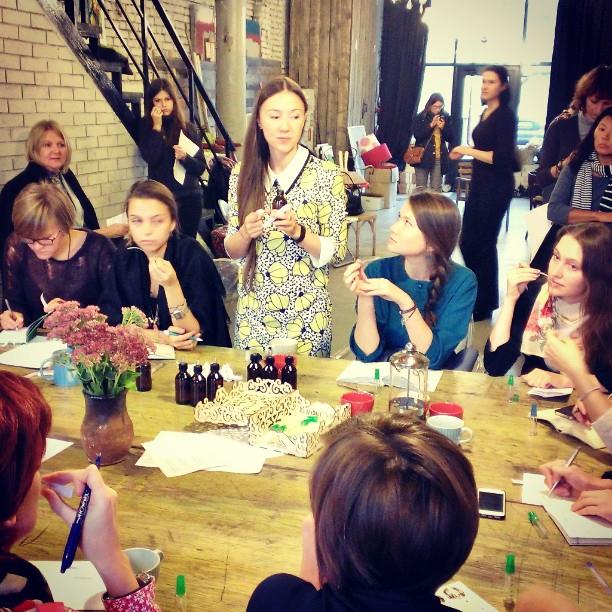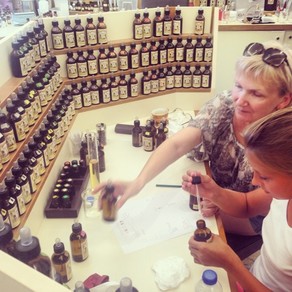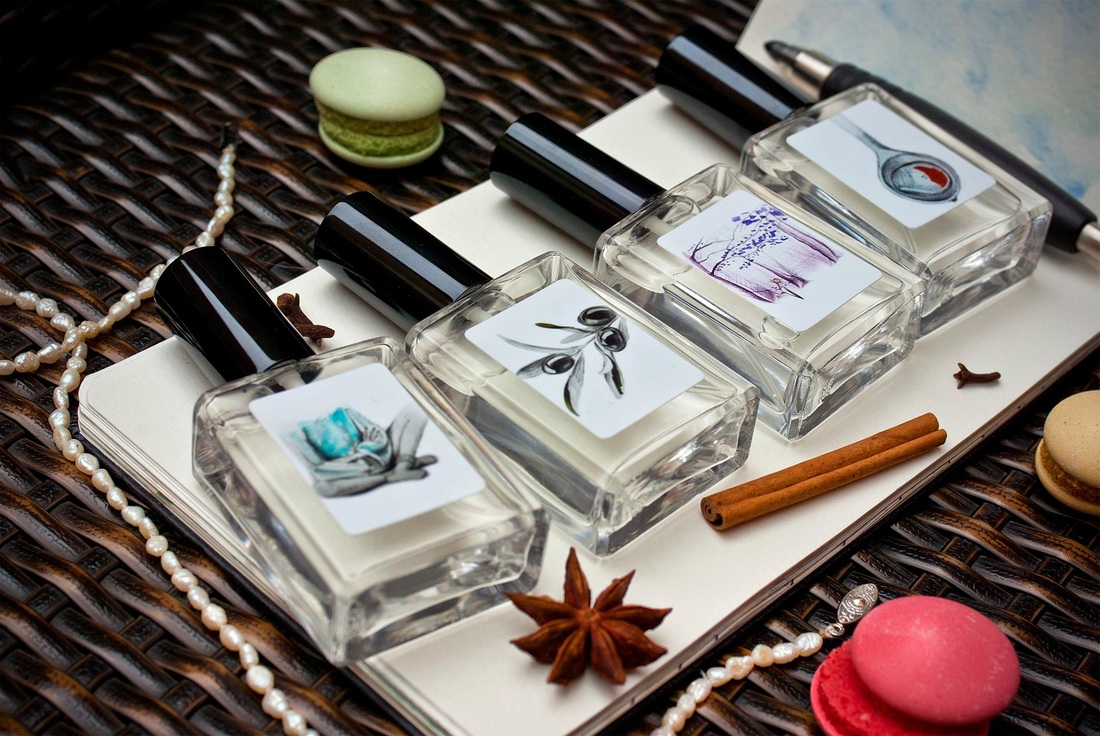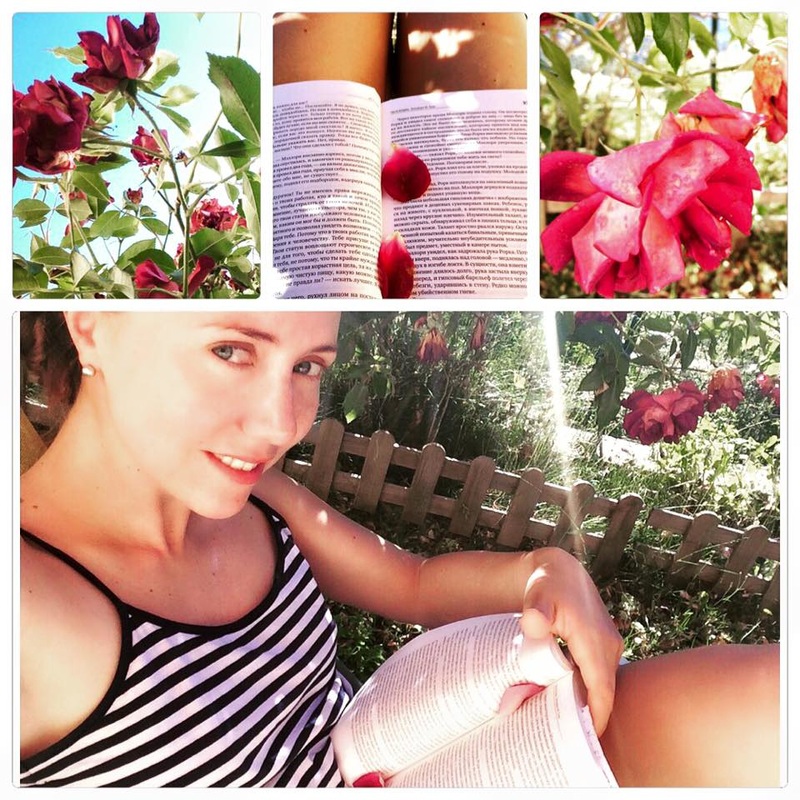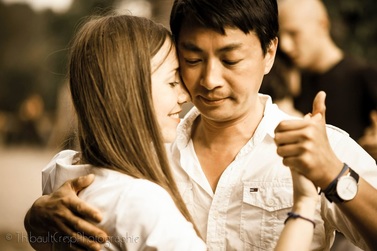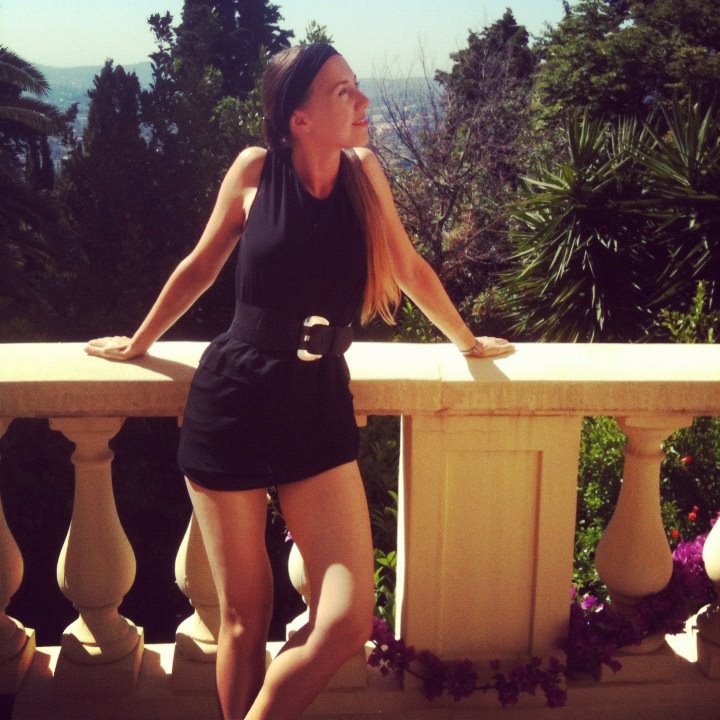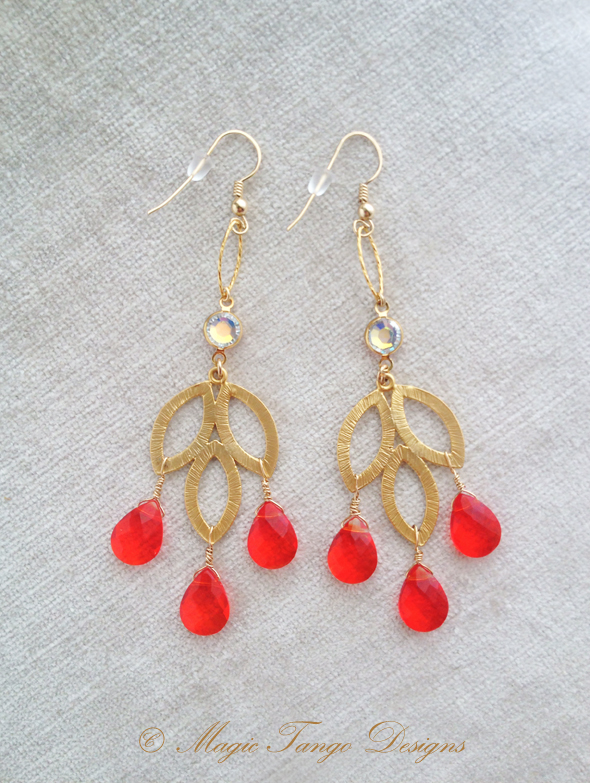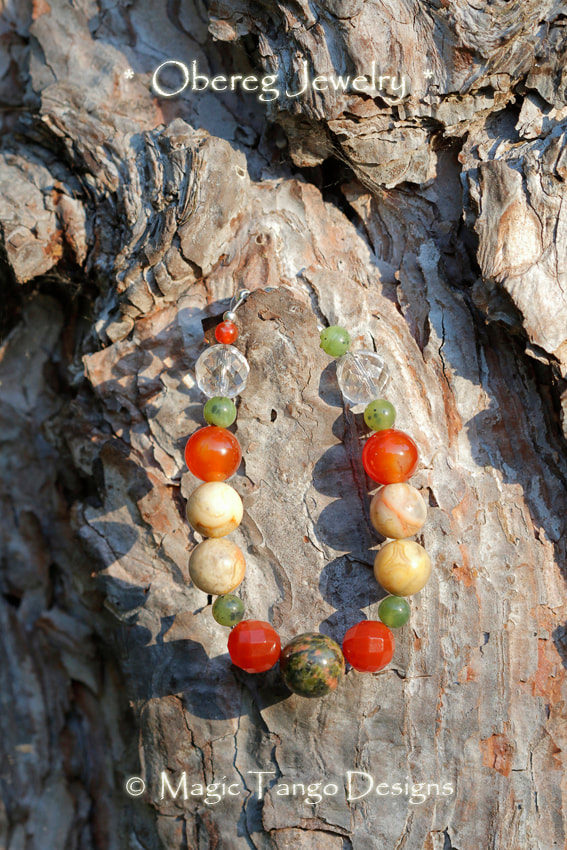© Interview by Tatiana Balashova
Photography © Anna Agurina, Dasha MasLove, Olivier Normandin, Yulia Zlobina, Alexander Putilin.
Big thanks to all the photographers, who allowed to use their pictures in this publication!
" ... One day I realized that my life just didn't make sense without some aspect of personal creativity."
Q1: Anna, tell us please, when did you first pay attention to perfumes and what fragrance it was?
We are all surrounded by a multitude of fragrances and smells from birth, and our olfactory senses play a crucial role in our discovery of the world. A perfumer hones these instincts and is constantly alert to ambient smells, ever ready to analyze and divine their source. Fragrance becomes an integral part of our everyday consciousness. I’ve loved perfumes from my childhood, but only began to study them seriously at perfumery school in Grasse (France). I remember the perfume that most astounded me was Vetiver Tonka Hermessance by Hermes I still love it.
After high school I had to decide what to do with myself, and which occupation to choose, at the time I didn’t know a lot about myself, but I was sure I wanted to do something useful, and be able to work with my hands and see my creations. So I decided to study chemistry. As fate would have it I never did actually work as a chemist. After college I became a brand manager of Nina Ricci and Prada perfumes, but always kept to this idea to develop my own creations. And indeed, one day I realized that my life just didn’t make sense without some aspect of personal creativity. As I had been passionate about perfumes for years, I left my job and applied to perfumery school in France.
Well, the most difficult part was getting accepted to a perfumery school. They only accept ten to twenty students per year, depending on the school. You have to be among the best candidates, pass difficult exams, and also demonstrate the depth of your motivation. In 2012 the competition was fierce - thirty people competing for just one place. Once you’ve been accepted you just need to apply for a student visa and arrange finances. Life is France is extremely expensive.
Q4: By the way, is there a big choice of schools out there for those who want to study to become a perfumer?
There are two main schools: ISIPCA in Versailles and GIP in Grasse. Both are in France. I studied at GIP.
It was a wonderful time. I loved that feeling of going back to school and turning over a new page. We were an international group of many different ages and our comraderie really enriched the experience we shared. It only takes one year to complete the coursework, but of course you also need to already have a degree in chemistry or biology or pharmaceutics. My Master’s Degree in chemistry definitely played an important role in my success. I must say it was rather strange to find myself living in a dormitory! I would spend twelve hours a day at perfumery school, and then see the same people again in the evening and on weekends. But we became fast friends and still keep in contact.
Q6: Have you always had a sharp sense of smell or did it develop along the way? What can help people to develop their sense of smell?
Let’s say I was sensitive and receptive from the beginning. The ability to identify fragrances comes from the training. You have to do thousands of repetitions to create your own olfactory associations and work to maintain it and continue to smell ingredients your whole life. From my point of view, anyone can do it. It’s just a matter of motivation and patience. So the sense of smell actually can be developed through life, unlike eyesight and hearing which tend to deteriorate with years.
Q7: Is there anything special you have to do to take care of your sense of smell and health to keep that "instrument" tuned up and sharp enough to work with it? People use coffee beans in the perfume shops. What is a good way to choose a perfume from the store?
Perfumers must never smoke or eat menthol candies and very spicy food. I’ve heard it said that perfumers cannot drink alcohol or swim in a swimming pool. I don’t find this to be true. Concerning a coffee beans, we never use them, because of their overpowering smell . If your senses detect something as strong as coffee you won’t be able to distinguish a delicate perfume afterward. When perfumer’s nose becomes saturated by fragrances the best thing to do is to go to the fresh air.
I take every chance I get to get outside. Nature is one of the main inspirations for a perfumer. And besides, I love France! It’s so awesome! You can find everything here: fields, mountains, the sea, even deserts, and forests. They all have their own smells and lovely spectrum of color. I’m always full of impressions and emotions after these kinds of excursions, and am ready to spend countless hours working in my lab.
I cannot attach myself to just one, just as I cannot choose my one favorite color. Actually, a perfumer should love all aromas, because there are no bad ones or goods ones, per se. Nevertheless I love woody notes and incense. My favourite perfume is Feminite du Bois.
Q10: How long does a flower retain its fragrance when it is taken from its natural setting?
The intensity of the smell depends on the climate and time of day. There is one French perfume, which is called L’Heure Blue by Guerlain. It was created 100 years ago. It’s meant to recreate the conditions at about 8 p.m., when the sun slowly sets, and the light becomes muted and blue. At this moment plants emit their strongest aroma. This perfume is dedicated to this particular wonder of nature.
Amazing fact: did you know that a perfumer can memorize about 260 aromas on average, they form his or her basic palette. Potentially it can be extended up to 500+ aromas.
The video tells about types of perfumes in terms of durability and how to use apply them.
I prefer to create short and clear formulas. Otherwise it will be a soup or aromatherapy. And from my point of view every blend is a challenge. Most of my formulas contain about 20-30 raw materials, but actually it’s possible to create a wonderful perfume using only 10-15 ingredients. My favorite perfumer Jean Claude Ellena (Hermes) is a master of short formulas.
When we sense an aroma, it creates an instant reaction in the brain of a person. The part of our brain which is in charge of it is called limbic system. It is responsible for feelings and emotions. That's why aromas (scents) can trigger an instant emotional response.
Q12: Who were the most famous perfumers which influenced this art? Who would you say influenced you most personally? Have you ever had a chance to work or intern with any renowned perfumers, and if so, how was that experience?
There are many celebrities in the field, but I would like to mention Edmond Roudnitska, who created some of the best 20th-century perfumes, "Diorissimo" by Dior and "Eau Sauvage". Not long ago his son launched one of his father’s perfumes called “Le Parfum de Therese”, dedicated to his wife. You can find it in the Frederic Malle perfume collection. Edmond Roudnitska was a teacher of Jean Claude Ella, whose works had a huge influence on me. I like his ideas and how they are realized through the perfumes. I can recommend his book “The Alchemy of Scent”.
People usually have a born feeling of what might sound best on their skin. For example, people with darker skin tones (no matter what area they live in) would prefer balsamic sweeter scents. Interestingly, on their skin they become less sweet. Whereas on people with a light skin tone such scents would acquire a intense sour note.
So on each person an aroma be revealed in a different way. It is connected to the fact that there are many different microorganisms and bacteria on the skin of each person. Also pH-level differs from a person to person. Those two facts are enough to make the scent sound differently.
I like all parts of my work. It starts from an idea and ends with the packaging design. But the sacred moment when the perfume is finished and the client likes it. I love to create bespoke fragrances with people because there no limits, and untrained people don’t know the established “perfumery rules”. Some of my clients and I have created some awesome perfumes, that I would never otherwise made myself. One lady mixed earthy humid patchouli with a funny peach and created a beautiful fragrance. Another young man blended fresh lavender together with sweet raspberry. The combination was surprisingly good.
I teach because I think it’s important to share knowledge. Perfumery remains a mystery because we don’t really know so much about it. Have you noticed that even perfume ads never speak about the quality of a perfume and or about the ingredients (usually it’s the image of a lady with some nice music in the background)? I want to make perfumery more popular, so I teach. During my seminars I tell stories about perfume ingredients, I distribute raw materials to sample and smell, and I let the participants create their own blend.
If a client works together with me it will take around 2 hours to create one perfume, and my fee is 300 euros. I’m working now on a project of bespoke fragrance studio in Moscow. This workshop was launched in the summer. And I would visit Canada with pleasure as well to teach that workshop. You can contact Tatiana and pre-register for the workshop if you are interested. Once there is interest it can be arranged.
Q17: If you were to create your own school for perfumers what would you be sure to include?
Actually, I plan on doing this very soon. My perfumery school authorized me as a qualified professional trainer a few months ago, so I’m presently working on a project of opening a branch office of GIP in Moscow. The opening will be on November 16th. Stay tuned!
Q18: Speaking about aroma therapy, do you believe in it and have you ever tried to apply it?
Yes, of course I believe in it. Fragrances have a huge influence on our minds, and our minds undoubtedly have a huge influence on our bodies. I’m working now on an interesting project: the creation of an “emotional trigger scent” which will stimulate our brains when we need help. I’m even considering developing this as a PhD topic.
Q19: If you were to choose one aroma (smell, fragrance) to sense if all others fail what would it be?
My own skin :)
Q20: Is there any dream you would like to come true in connection to perfumes and your job?
My dream is to become more and more experienced every year. To become a master perfumer you need about 30 working years. I’m just on the beginning on this path.
Q21: Anything special you would also like to share with the Tango Dancers Blog readers? A story or a tip maybe?…
Don’t be shy about using perfumes on the milongas. They help you feel more self-confident and to better express your unique personality.
Q22: ... What is photography to you?
One of my friends once said: “Anna, you are visually smart.” I suppose it’s true. So I take pictures to show how beautiful our world is. I don’t master any photography technique, but I feel the colors and composition.
T: Thank you, Anna! It was very interesting to get to know you better and listen to your stories. And who knows, maybe thanks to you some day my dream to create a few aromas will come true ;).
- Favorite tango music: Milonga del angelo, Astor Piazzolla
- Tango DJs: Jens-Ingo Brodesser from Brussels
- Non-tango music: Bach
- Color: if I had to choose only one I'd prefer white.
- What is your favorite flower? Peony
- What perfumes are your favorite? (for men and women) Feminite du bois Serge Lutens (unisex)
- Favorite dish / food: figs
- Which animal would you like to be if you were an animal in your next life? Rhinoceros (joke)
- What dance would you dance if not tango? The Lindy Hop (I already dance it)
- What film(s) would you recommend watching? Any film about France, they are all fascinating.
- What places in France you recommend visiting? Cote d’azur and especially Grasse (capital of perfumes)
- What place would you choose for a romantic trip? A Cabin in the mountains
- What place would you live if you could live anywhere? Where I am now (Nice), or San Francisco
- Who would you like to say “thank you” to? To you! Thanks for your questions and initiative.
- Your motto: “The person who comes to you is your main and most important occupation.”
